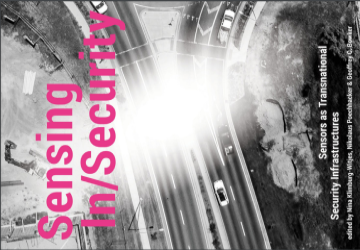Talk: Big Data Policing in Canada
I am very excited to announce an invited talk by Thomas Linder (Surveillance Studies Centre, Queens University) on Big Data Policing in Canada as part of our workshop on Risk Assessment and Computational Knowledge Production in Legal Systems. Really looking forward to this!
When: Friday, 30 November 2018, 7pm
Where: Marsstraße 20-22, Technical University of Munich, Room 607
Poster (pdf)
Taking a Canadian perspective, Thomas Lindner endeavors to trace some key trends in “predictive policing”. In his talk, he outlines the main models in deployment and looks at the different kinds of criticism it received; from journalists, academics to law enforcement. The Canadian case is then situated as an alternate developmental arc in this context. From there, the talk then investigates a shift towards “prescriptive policing,” wherein predictive policing platforms are increasingly being expanded to include self-surveillance capacities intended to enhance tactical efficacy and operational accountability. Finally, the talk articulates this shift within a larger emergence of “platform policing” systems and makes the case for increased critical attention to this phenomenon.
Thomas Linder is a doctoral candidate and a Big Data Surveillance research fellow at the Surveillance Studies Centre at Queen’s University. Keenly interested in political theory, he completed his BA and MA at the University of Zurich. His MA thesis under the supervision of Prof. Dr. Philipp Sarasin investigated the complexity of defining surveillance in the digital era. His doctoral research is broadly situated in Critical Security Studies and Surveillance Studies and investigates emerging surveillance technologies and their impact on domestic security practices. He also works in Science and Technologies Studies with a particular focus on digital technologies and is a co-editor at ‘Transmissions: An SSS Companion Blog. In addition, he is a research fellow in the Big Data Surveillance SSHRC project where he works on national security surveillance practices as well as on the development of intelligence-led and predictive policing programs in Canada.
The event is hosted by the MCTS Lab Engineering Responsibility and the Department for Computer Science. The event is supported by the TUM Graduate School.






